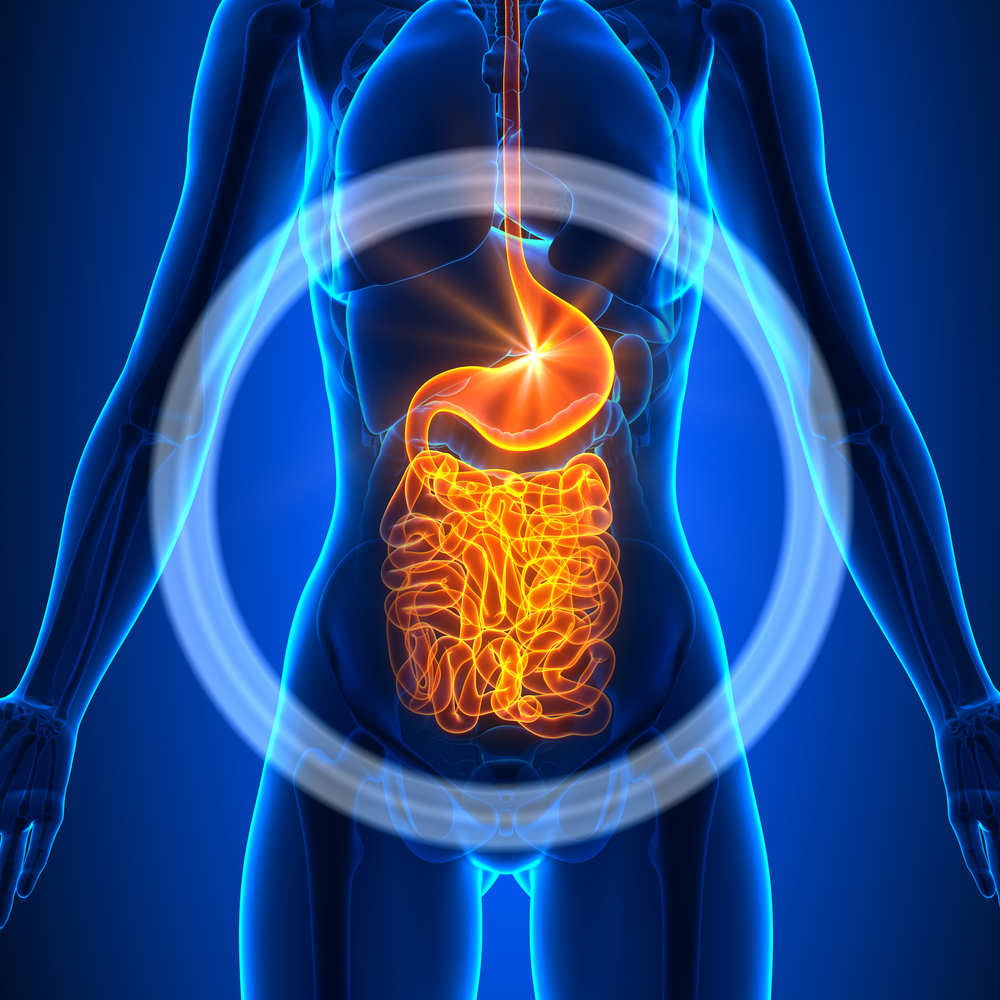 More and more research shows that gut health directly affects hormonal balance. We already know that much of the immune system is within the gut microbiome. Immunity doesn’t just determine whether we will get that flu bug that’s going around; it also plays a big role in resistance against chronic diseases, such as metabolic disorders, cardiovascular disease, obesity, cancers, and even cognitive function.
More and more research shows that gut health directly affects hormonal balance. We already know that much of the immune system is within the gut microbiome. Immunity doesn’t just determine whether we will get that flu bug that’s going around; it also plays a big role in resistance against chronic diseases, such as metabolic disorders, cardiovascular disease, obesity, cancers, and even cognitive function.
The Gut Explained
The gut comprises the entire digestive tract from the mouth to the large intestine. It contains thousands and thousands of bacteria, many of which are essential to keeping us healthy. Most bacteria in and on the body are good, and we want to keep them balanced correctly so that the “bad” bacteria don’t become predominant.
There is a pocket outside the large intestine called the cecum that functions much like an organ and can weigh up to five pounds! The cecum is where the gut “microbiome” lives, and it’s responsible for processing and taking in nutrients to distribute them to the rest of the body through the gut wall. It also helps defend against harmful bacterial agents and prevents us from getting sick.
When the microbiome is unhealthy, the immune system is affected, and all sorts of things can go wrong. Many factors can cause the gut to get out of balance, including an unhealthy diet, taking antibiotics, poorly managing stress, and not getting enough sleep.
Symptoms of an Unhealthy Gut
 The biggest influence on gut health is the food we put into our bodies. If we are eating things that are unhealthy, such as processed foods, a lot of sugars, and bad fats, then not only do our bodies not have the correct fuel to function correctly, but toxins and harmful bacteria can “leak” through the gut wall and wreak havoc on other bodily systems, including our hormones.
The biggest influence on gut health is the food we put into our bodies. If we are eating things that are unhealthy, such as processed foods, a lot of sugars, and bad fats, then not only do our bodies not have the correct fuel to function correctly, but toxins and harmful bacteria can “leak” through the gut wall and wreak havoc on other bodily systems, including our hormones.
Gut dysbiosis (imbalance) also leads to fewer circulating hormones throughout the body, which can lead to metabolic syndrome and problems with insulin and obesity. Chronic imbalance can lead to much more serious disorders like cardiovascular disease and cancers. It can even affect cognitive function.
Antibiotic use also throws the biome out of balance because while they kill off the harmful bacteria, they don’t discriminate—the good bacteria get destroyed, too. Our bodies don’t make probiotics on their own, so it’s important to take a good quality supplement. Fermented foods such as kefir and kombucha also replenish probiotics and help to restore balance.
Chronic issues and symptoms that can be associated with an unhealthy gut are:
- Gas and bloating
- Diarrhea
- Constipation
- Acid reflux
- Sensitivities to certain foods
- Sugar cravings
- Rashes and/or eczema
- Depression
- Memory issues or brain fog
- Vitamin deficiencies like B12 and D3
- Auto-immune disorders
- Weakened immune system
- Hormonal deficits/imbalances
- Chronic inflammation
- Hypothyroidism

Gut Health and Hormones
Many things can cause hormonal imbalances and can, in part, be treated with supplementation of bioidentical hormones. However, for optimal health, a well-functioning gut biome is imperative.
A lot of new research is surfacing, which shows that the microbiome plays a large role in estrogen regulation. An unhealthy microbiome can cause a slew of different diseases, such as PCOS, endometriosis, breast and other cancers, among many others. Here are a few references for further information on this:
https://www.ncbi.nlm.nih.gov/pubmed/28778332
https://www.ncbi.nlm.nih.gov/pubmed/12093827
https://www.ncbi.nlm.nih.gov/pubmed/27093642
And it’s not just estrogen that’s affected:
- About 95% of the hormone serotonin is produced and stored in the gut. A shortage of this can lead to both depression and anxiety. Many doctors are quick to prescribe antidepressants when, in fact, your diet may be what’s causing your symptoms.
- An imbalance in the gut can also cause hypothyroidism or low-performing thyroid. Symptoms can include chronic fatigue, weight gain or inability to lose weight, hair loss, and more.
- Insulin, a hormone secreted by the pancreas to control blood sugar, is partly regulated by lactobacillus reuteri, a bacterium in the gut biome. Insulin resistance is a common problem for people who eat diets high in processed foods and sugars and can be the precursor to serious diseases such as diabetes and cardiovascular disease.
- Vitamin D3, a precursor hormone, is not well absorbed by the intestine if the gut is unhealthy. Vitamin D is crucial to good health on many levels, and chronic deficiencies can lead to a weakened immune system and many other health problems.
 Renewed Vitality Can Help
Renewed Vitality Can Help
Our providers are experts in identifying and treating hormonal imbalances and addressing other issues at the root cause. For example, normally, when you see a doctor for symptoms like acid reflux and other digestive issues, they will commonly prescribe drugs to treat the symptoms with proton pump inhibitors such as Prilosec and Prevacid. Ironically, the side effects from these drugs create a further imbalance in the gut flora, which leads to more issues. Read more about this here.
We work with you to treat the cause, not just the symptom. Our comprehensive lab work will identify any issues with your hormones, inflammation levels, insulin, and more. We also offer a test to give you an overall picture of your gut health. This is called the Genova GI Effects test. Click here for more information about this test.
Ways You Can Improve Your Gut Health

- Eat an anti-inflammatory diet rich in nutrients. For a guide on which foods have anti-inflammatory properties, click HERE.
- Eat and drink probiotics or take a supplement. Probiotics are made up of the friendly bacteria that make up a healthy gut biome. Foods such as Greek yogurt, sauerkraut, kefir, kimchi, and kombucha all contain high amounts of probiotics. Probiotics also promote better absorption of vital nutrients your body needs to function optimally. If you choose to take a supplement, make sure that you change out your supplement brand every three months or so to include different strains of good bacteria.
- Consume prebiotics. Prebiotics are food for probiotics and help them thrive and grow in numbers. The best sources for prebiotics are fibrous fruits and vegetables, such as green bananas, garlic, onions, oats, quinoa, and legumes.
- Eliminate sugars and simple carbs. Just as prebiotics feed the good flora in your gut, sugar and simple carbs cause the harmful bacteria to multiply.
- Keep antibiotic use to an absolute minimum. If you do have to take them for health reasons, always supplement them with a good probiotic to restore the balance in the gut. (The reason we can have side effects when taking antibiotics is that they kill off ALL bacteria. Diarrhea is a common symptom of this).
- Consume polyphenols. These compounds are found in red wine, green tea, and dark chocolate.
- Drink a lot of water! Besides keeping you hydrated, water benefits the gut lining and helps maintain balance.
Our Approach
We take a science-based, holistic approach to determine what may be causing your symptoms and treat them accordingly. Our providers realize each person has individual needs that are unique to them. What is normal for one person may not be for another. Our appointments are an hour long, and you can rest assured that we will listen to you and your concerns. Our testing provides objective results, allowing us to tailor hormonal treatment to optimize your overall health.
We’ll also discuss plans and solutions to restore balance within your gut biome so that you can feel your absolute best!
Call us at (214) 740-4703 or complete the form below, and we will contact you.
